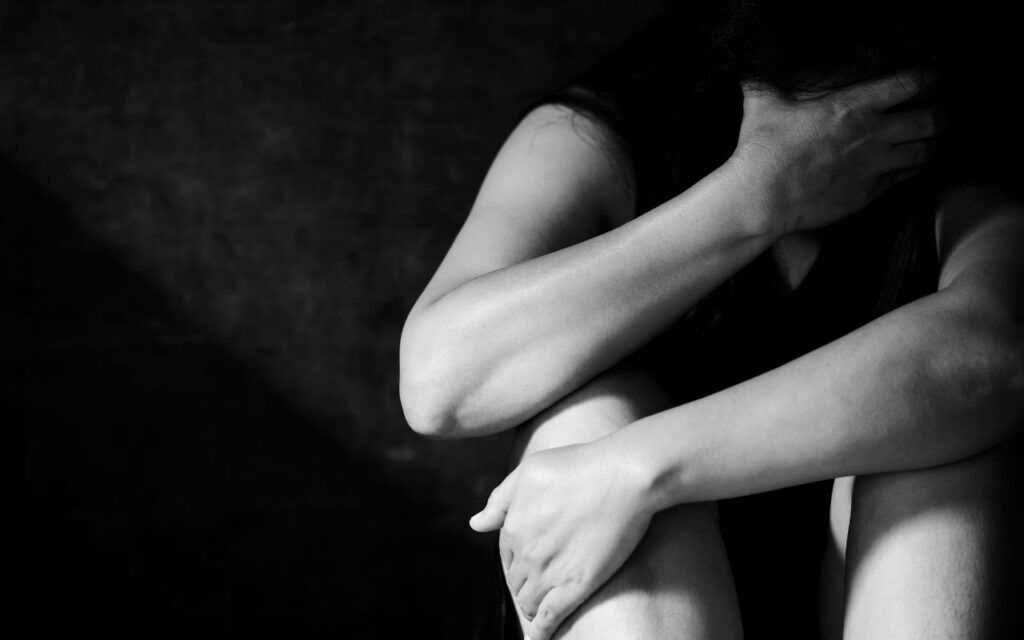
It started slowly, insidiously, and incrementally.
I had taken a job overseas as a communications professional and volunteer working with disenfranchised inner-city youth. We met at the airport and fell into a whirlwind romance. I was immediately captivated — he was tall, handsome, brilliant, and wickedly funny. In my gut, though, it felt as though I had boarded a mega cruise ship and realized it was unsafe but it was too big and unwieldy to stop and disembark. So, I forged ahead. I loved his carefree outlook on life, which seemed to ease my ever-present anxiety.
But with his humour and relaxed nature came a dark side.
Several weeks after meeting, we sat in his car and out of nowhere, he questioned my reasons for taking the job I was doing.
“Do you think you’re special? Do you think you’re better than everyone? You can’t help anyone here,” he said.
Our relationship progressed, and the warning signs kept piling up, including signs of infidelity and constant lying, even when there was no need to lie.
But as they do in these kinds of situations, the relationship moved quickly, and soon we were married. Even the proposal was cruel: after a fight during which he told me to go back to Canada, he pulled out a ring. Later, I asked him why he proposed that way.
“I wanted to make it different, something unexpected that you wouldn’t forget.”
A loss of self
So why did I stay in such a horrific relationship? I return to the mega cruise ship. I had fallen in love and also felt I had no choice. I felt bonded to this man for life, someone who had promised me forever and who wanted to raise children with me.
In describing the cycle of abuse, professionals liken it to being brainwashed. The treatment is so insidious and incremental that one day you look in the mirror and don’t recognize yourself. You begin to believe this other version of yourself: that you are nothing, that you need them to be better, which is what my husband told me. “I’m just trying to help you,” he would say to explain the constant criticism.
The attacks on my character and the critiques of everything — from how I cooked and cleaned to how I related to people — escalated.
Instead of rejecting the treatment, I turned it on myself. I became wracked with self-doubt and lost myself. It got to a point where I could barely speak because his harsh voice of criticism had replaced my own, forcing me to question everything I said or did.
Escalating control
We had two children, a girl and a boy, and while their arrival completed and healed something within me, I was a shell of myself.
Daily attacks and criticisms ramped up once the kids came into the picture, especially surrounding how I took care of them. He would rarely participate in childcare, so I was also dangerously sleep-deprived from years of waking multiple times a night to breastfeed.
He began to call me derogatory names and insulted my intelligence in front of others. “There’s no need to explain it to her,” he told our banker when we were signing papers for a mortgage. “She won’t understand it anyway.” I can still remember my cheeks burning and the look the female banker and I shared.
The isolation had started as well. “You don’t need friends. They’re not your real friends anyway,” he would say. When I wanted to go out, he would question and berate me for leaving. He even began to tell me to stop running, something I loved and had done regularly for over 20 years.
I rationalized everything by telling myself that I could ignore it and that the children were too young to understand what was going on.
Then, that changed.
One day, my little son knocked a mug off the table, shattering it. In an instant, my husband raised his hand to hit him. “Get out,” I yelled, hoping that he would leave the situation to calm down. Instead, he lunged at me as though he was going to attack me. I froze, bracing for a blow. He just stood over me, menacing me with his presence. This happened again, as did hitting the walls and throwing and kicking things.
Another time my son injured his toe. My husband screamed in his face, called him names, kicked a fan, and hit the wall.
And then, one evening when I swore at him out of frustration, he raised his hand to strike me. It was not so much the physical threat that scared me, but the look in his eye. Or rather, the lack of a look. There was nothing there. His eyes were blank, devoid of anything except a need to assert his dominance.
“You’re lucky it was you,” he said. “Anyone else swears at me and I throw them headfirst out the window or kick their head in.”
Gathering courage
I knew I needed to leave, but I did question that decision. “He’s never hit me,” I thought. Nevertheless, because my children had begun to be affected, I knew I had to get out. “Does Daddy want to kill me?” my little daughter asked me once after a particularly bad outburst of anger.
As they grew older, they witnessed him calling me stupid, idiot, a pig. They witnessed the constant narration of everything I was doing wrong. They saw my tear-stained, red face too many times. “Mummy, are you crying?” they would ask. I would tell them I was tired.
I began to save money from the various contracts I had, even though he tried to convince me I didn’t need to work.
It took several years, but I gathered myself, some money, and the courage to leave with my two children.
It has been over a year now, and I am just beginning to recognize myself.
A call for legislative change
I have since learned about the concept of coercive control, which has been articulated in a proposed amendment to the Canadian Criminal Code.
Coercive control is a “pattern of violent behaviour that seeks to take away a person’s freedom and to strip away their sense of self. The person using violence creates a world in which the person experiencing coercive control is constantly monitored and criticized; their every move is checked against an unpredictable, ever-changing, unknowable rule book.”
The term is slowly replacing domestic violence or domestic abuse, which evokes physical contact. My husband never hit me, and there is no evidence of abuse.
But, “domestic abuse is far more than a black eye or broken bones,” says Andrea Silverstone, CEO of Sagesse, an Alberta-based non-profit working to end domestic abuse. “But all too often, we focus on instances of physical abuse since that’s what our laws commonly recognize. This leaves those who experience non-physical forms of abuse unvalidated and unsupported.”
“We believe the criminalization of coercive control could have a similar impact in Canada, validating the experiences of survivors and empowering them to ask for help, not only from police, but from social services,” Silverstone says.
With more support, women would be less isolated and less vulnerable to the progression of the abusive cycle.
A private member’s bill to criminalize coercive control just passed third reading in Parliament and has had a first reading in the Senate. Punishment could include up to 10 years in prison. In the UK, it has been a crime since 2015, and the legislation seems to be having some impact.
“In jurisdictions that have criminalized coercive control, early indications show that these laws are being used to intervene to stop escalating violence. For example, in England and Wales, the number of coercive control offences reported to police increased to more than 40,000 per year in 2023, an 85 per cent increase over 2019 numbers,” Silverstone says.
In Canada, the statistics tell a horrifying tale. More than 50 per cent of women over the age of 16 have been victims of physical or sexual violence, and domestic violence accounts for one in every four violent crimes reported to police.
In my case, my husband destroyed my spirit and eliminated my autonomy, and I barely escaped intact as the situation continued to escalate. For a long while, I knew I couldn’t stick around to see how it would end.
This is a pervasive crime, and one about which women largely remain silent. I have chosen to remain anonymous to protect my children, who don’t yet fully understand the situation. Hopefully, the more we have this discussion, the more women will speak out, get help, and regain control over their own lives.
~ Submitted anonymously







